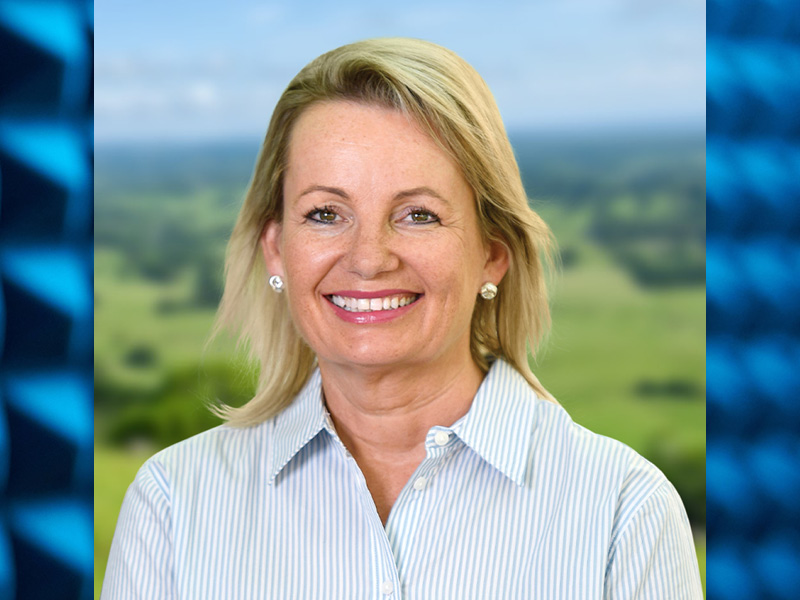Energy price uncertainty and skills shortages top the list of concerns for Australian industry, according to deputy Opposition leader and shadow Industry minister Sussan Ley.
She says local industry had been impacted by a funding drought, with former Coalition programs shut down long before replacement initiatives like the National Reconstruction Fund and Industry Growth Program are up and running.
Australian manufacturers in particular had been left trying to understand whether the federal government would respond in some way to the huge incentives being offered in the United States through the Inflation Reduction Act.
Ms Ley, a Cabinet minister in the former government who has held ministerial portfolios ranging from Health to Aged Care and the Environment, spoke to The Commercial Disco podcast about the challenges facing local industry.
Since taking the shadow Industry, Skills and Training role under Peter Dutton after the 2022 election, Ms Ley says she has engaged widely, to better understand industrial challenges.
“People don’t speak with one voice, but there are similar themes,” she said. “And I would certainly put energy and workforce [issues] at top of the list.”
“If I walk on to a manufacturing factory floor that is high in energy usage – or uses gas – and [that company] is looking at their energy bill every month and wondering why they are continuing to do what they’re doing. I really hear that.”
“And there are huge choke points in getting a skilled workforce in this country,” Ms Ley said. “That’s something that this government is not doing enough about. They have completely misunderstood the workforce needs, the balance between bringing in skilled workers and training our own.
All businesses operate in different ways and have different specific needs, according to the market they are in or the product they are producing.
“But there are things that government should do to put the basics in place: energy, workforce, and of course, industrial relations, which is looming, [with] changes that are pretty scary,” Ms Ley told the Commercial Disco.
She says the National Reconstruction Fund is not the answer for our manufacturing industries, which have suffered a tripling of insolvency rates in the past two years.
“And even if you think it is [the answer], the fact that almost a year after the legislation for the fund passed the Parliament, it hasn’t handed out a single dollar just goes to show how slow – how glacially slow – is the rollout,” Ms Ley said.

“I believe the government should not have torn up a single Coalition program until their own programs were in place and ready to fund projects. That’s the kind of statement I can make about the NRF.”
“Meanwhile, we have a vacuum. Manufacturing businesses just can’t afford for there to be no policy, and to pretend that this [NRF] is there is disingenuous of this government.
“It’s not handing out a single dollar of money. Manufacturers can’t afford to wait if they want to succeed … in a competitive and globalised market.
“Those in cutting edge startups, the innovators with new offerings, those who are in a highly competitive industry already, they have got to act fast to commercialise their ideas or they risk falling behind.”
Ms Ley said that companies in trade-exposed industries can’t afford to wait. Companies are closing at alarming rates, and others are choosing to move manufacturing to the US, attracted by the incentives of the Inflation Reduction Act.
The IRA is a difficult challenge for a mid-sized economy like Australia’s to compete with. But companies will look to government for policy certainty – and the government has not been talking about a specific response to IRA.
“We have to recognise that the Inflation Reduction Act is a significant international policy with massive ‘pull’ incentives to the US, and structural incentives that have been put in place by the US government,” Sussan Ley told the Commercial Disco.
“Yes, this is going to attract businesses internationally. If you look at [electric vehicle charging outfit] Tritium in Brisbane, you can see a great Australian story moving to the US, losing 400 jobs on the way,” she said. “I know others are considering it, too.”
“We can’t stump up the sorts of cash to compete like that. We would never suggest that. But we have as a country got everything going for us: We’ve got a safe country, we’ve got a stable country, [and] we’ve got an incredible lifestyle advantage.”
“We’ve got a smart and capable workforce, we’ve got world class educational institutions, the world’s best traders, the world’s best engineers.”
Do you know more? Contact James Riley via Email.

